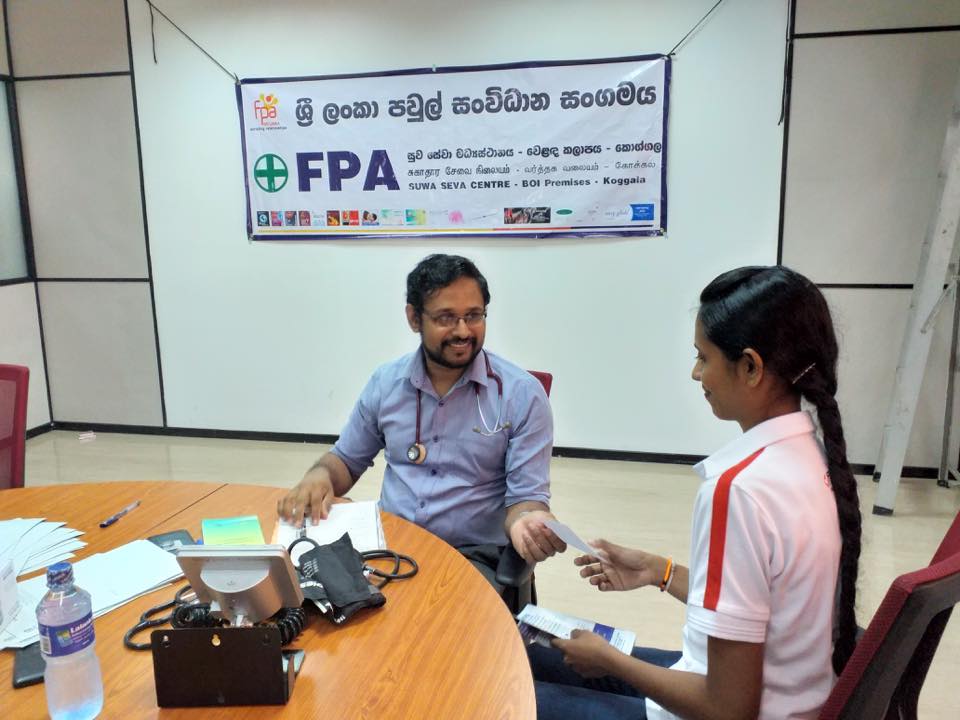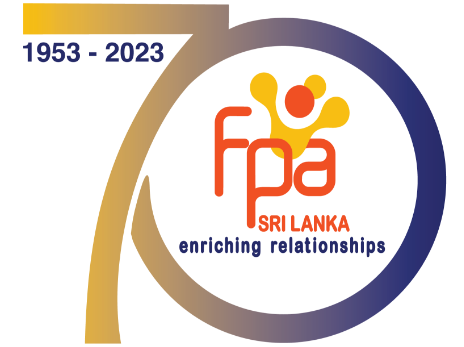Levi Strauss Project - Project period - 1st November 2020 to 31st October 2022

The Outreach Unit has been awarded a grant to support continued access to sexual and reproductive health services for female apparel workers in Sri Lanka during the COVID-19 pandemic. This project will be implemented through the Seethawaka, Koggala and Wathupitiwala SDPs. The donor is Levi Strauss Foundation.
Background: EPZ, Factory workers are already a disadvantaged social segment due to their nature of the work and socio economic status especially in terms of access to Sexual and Reproductive Health Information and Services. Being a factory worker is identified as a risk factor for most of the sexual and reproductive issues such as teenage pregnancy, unsafe abortion, Sexually Transmitted Infections and unmet need for family planning. These needs are unique and hardly addressed by the general family health programme of the Ministry of Health. This situation was further affected negatively by the COVID 19 pandemic. By end of the intervention it is expected that the factory workers attached to three selected Free Trade Zones will realize their right to access Sexual and Reproductive Health information and services during the COVID-19 crisis situation.
This is the time to take a woman- centric approach for SRH and Covid 19 prevention in workplace service delivery. The need to bring these services closer to the work place is a good strategy where employers and service provider can collaborate on both women’s health and well-being. Counselling women in these difficult times either through a hotline/video connection seems imperative to restore a sense of balance in the already over-burdened minds of the women working in this sector. The importance of self-care, personal protection from the virus and safe-guarding family members throughout the upcoming months are considerations for emphasis.
The present pandemic has exacerbated the existing inequalities among genders and women and young girls have been disproportionately affected by it. Women had to manage the economic status of the family, in addition to coping with restrictions imposed by the curfew in securing daily essentials. They feared loss of employment in the wake of the crisis and needed counselling support to overcome the unknown crisis that seems to be prolonged and still continuing. Pay cuts, additions to family unit and loss of income drove them to do work in any condition and this had led to an increase of their vulnerability to Covid 19 and other infections as well.
During the last six months sexual and reproductive health services both in the public and private sector were heavily curtailed except for deliveries and pregnancy related services. Most pharmacies have remained open on a daily basis so that contraceptives can still be accessed. Out of FP methods, providing women with the contraceptive injection of Depo-Provera and other family planning methods that the clinician needs to intervene have been most affected. Also abortion related counselling and services are non-existent in the midst of Covid 19 related responses, getting priority. There is no possibility for front-line staff to access community, due to government’s instructions on “social distancing” still prevailing.
Women in the apparel sector due to long working hours and being unable to access care during working hours often neglect their health and in some cases reproductive issues have progressed to unsafe abortions, disorders of the reproductive system, including infertility and cancers.
Activities of the project
- Demand generation activities (trainings, IEC material development)
- Service delivery (static, mobile and associate clinics)
- Hotline counselling service
- To enable access to information on COVID-19 to safeguard the health and well-being of factory workers and create a healthy working environment.
- To enable access to quality comprehensive SRH services and products for industrial sector workers and rural poor, underserved, socially excluded & marginalized communities
- To encourage E-health counselling on sexuality, psychological problems and other SRHR issues among the factory workers
- Offering Maternal care during pregnancy - pregnant workers may not want to access crowded ante-natal clinics and will miss the visits from the Public Health Midwife, due to employment. It is noted that people avoid healthcare facilities that are crowded during the period of pandemic and it is important to promote the Service Delivery Centres located within the industrial cluster as a place that deploys PPEs and distancing mechanisms, to make them feel safe.
- Capacity building sessions at factory level on staying safe and coping with the current pandemic.
.png)


